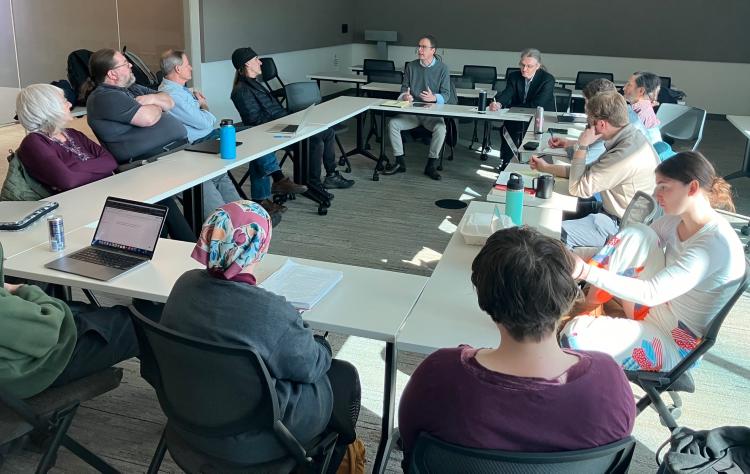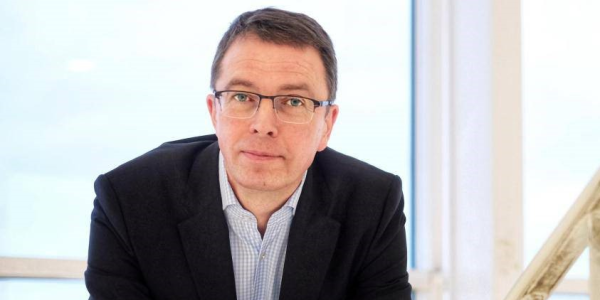German historian Paul Nolte discusses what populist movements in the United States and Europe mean for liberal democracies during CU Boulder colloquium
Is democracy in crisis?
It’s a question Paul Nolte, an eminent German historian, has been ruminating on for more than a decade.
“I’ve been concerned with the history of democracy since about 2010. And it was about that time when (I had) the first idea that something was going in the wrong direction,” Nolte noted Tuesday afternoon in a research colloquium titled “Crisis or Transformation? From Good-old Democracy to Rough Democracy, ca. 1970-2020.”
Nolte was the invited scholar for the event that was jointly organized by the University of Colorado Boulder Program in Jewish Studies, the Louis P. Singer Endowed Chair in Jewish History and the Pacific Office of the German Historical Institute Washington in cooperation with the Gerda Henkel Foundation. His visit was co-sponsored by the CU Boulder Center for Humanities and the Arts; the International Affairs Program; and the Departments of Germanic and Slavic Languages and Literatures, History and Sociology.

At a Tuesday colloquium, attendees listen to German historian Paul Nolte discuss the outlook for liberal democracy in the 21st century. (Photo: Bradley Worrell)
As one of Germany’s leading contemporary historians, Nolte holds a chair in modern history with a special emphasis on contemporary history and international relations at the Friedrich Meinecke Institute of the Freie Universität Berlin. His research areas include the social, intellectual and political history of the 18th to 20th centuries, especially post-1945 Germany and the United States as a transatlantic history of democracy.
During the colloquium, Nolte noted that while it’s not possible to predict the future, it seems unlikely that democracies will return to what some might call the “good-old democracy” days of the 1970s through 2020—what could be called the Liberal Age for democracies in Europe and the United States.
“The good old times for many European countries, in which there were just three or four political parties, center left and center right … the classical Westminster model, they’re probably gone for good. It’s not a very likely expectation that this will return,” he said. “There is a broad understanding (among historians) that we’ve entered a new period of history where things are not as they were in the 1970s.”
Specifically noting democracy in the United States, Nolte cited the work of author Daniel Rogers, who wrote the 2011 book Age of Fracture, detailing the disintegration of shared American values.
“The (book) title speaks volumes,” Nolte noted. “If we’re in an age of fracture economically, and also in social rifts, and the old working class does not exist, why would we expect anything else for the state of democracy?”
Nolte also said people need to understand previous developments in “rough politics” in Europe and the United States during the late 18th and 19th centuries and the “new roughness” in recent years as politicians on both the political right and left have embraced populism.
“Will we spend two more decades lamenting a persistent crisis, or even conjuring up the imminent downfall of democracy, somehow yearning for the good old days that never return?” Nolte asked in a paper shared ahead of the colloquium. “Or will we take up the challenge, academically and politically, of democracy not being steady-state, but changing in larger historical contexts? Welcome, then, to the old-new rough democracy.”
Top image: Paul Nolte (left) and Thomas Kaplan, the Louis P. Singer Endowed Chair in Jewish History and interim director of the CU Boulder Program in Jewish Studies (Photo: Bradley Worrell)
Did you enjoy this article? Subcribe to our newsletter. Passionate about arts and sciences? Show your support.



